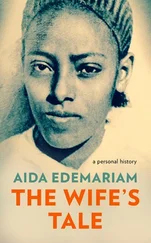His brothers were to go to Winchester, the public school founded in 1382 by William of Wykeham; and it seems that their father would have liked his eldest son to go to Eton. But it was, perhaps, as with the mother in Vivian Grey , that Ben’s mother – being ‘one of those women whom nothing in the world can persuade that a public school is anything but a place where boys are roasted alive’ – was firmly against this proposal and, as was commonly the case, her views prevailed. So Benjamin was sent instead to Higham Hall, a school near Walthamstow in Epping Forest which was kept by the nonconformist minister and Greek scholar, the Revd Eli Cogan, and at which, as at all similar schools in those days, the classics, with a little arithmetic, formed almost the only, and certainly the main, subject on the curriculum.
According to Mr Cogan, Benjamin did not shine as a scholar. ‘I do not like D’Israeli,’ Cogan was quoted as having said. ‘I never could get him to understand the subjunctive.’
‘I looked up to him as a big boy,’ an elderly clergyman said, recalling his days at school with Disraeli, ‘and very kind he was to me, making me sit next to him in play hours, and amusing me with stories of robbers and caves, illustrating them with rough pencil sketches which he continually rubbed out to make way for fresh ones. He was a very rapid reader, was fond of romances, and would often let me sit by him and read the same book, good-naturedly waiting before turning a leaf till he knew I had reached the bottom of the page.’
Other former pupils remembered Ben as a lively, carefree boy who took scant trouble over his lessons, who amused his companions on wet half-holidays by reciting romantic adventures of his own composition, and who ‘had a taste, not uncommon among schoolboys, for little acts of bargaining, and merchandise’. 10Much later, Cogan’s daughter told Beatrix Potter that the boy Disraeli ‘used to keep the other boys awake half the night romancing’.
But Benjamin seems not to have been happy at Mr Cogan’s, and if the schooldays of Contarini Fleming and Vivian Grey as described in his novels can be supposed to bear some resemblance to his own, they were certainly far from being contented ones. However, in his early days at the school, his idiosyncracies seem to have been tolerated at least: it was recorded of him that he suggested that he and his fellow Anglicans – who, having to walk some way to the local church and back to attend morning service, were late for dinner, which was half over by the time they returned to the school – should therefore become Unitarians during term time.
In Vivian Grey , the eponymous hero does not acquire the classical knowledge which has been dinned into the heads of the other boys but in ‘talents and various accomplishments’ he is ‘immeasurably the superior of them’. This leads him into a fight with another boy which is described with a lyricism and an evident pride in the author’s boxing skills acquired in those lessons which Disraeli was given in the holidays at home.
There is a great fight also in Contarini Fleming in which the hero enjoys a passionate friendship with another boy, a boy of sublimely beautiful countenance named Musaeus, after the semi-legendary poet whose verses had the authority of oracles.
‘I beheld him: I loved him [Disraeli has Fleming say]. My friendship was a passion…Oh! days of rare and pure felicity, when Musaeus and myself, with arms around each other’s neck, wandered together…I lavished on him all the fanciful love that I had long stored up; and the mighty passions that yet lay dormant in my obscure soul now first began to stir…’ 11
So Contarini endures the homosexual yearnings of youth but his passion for Musaeus soon cools and he, like Vivian Grey, is provoked into a fight which he wins. Thereafter he is shunned and persecuted by the other boys, as, no doubt, Disraeli was himself for being so obviously Jewish, as well as foppish with his ringlets and dandified clothes.
To his obvious relief he was taken away from Mr Cogan’s school when he was fifteen years old and allowed to continue his studies at home.
Questions have been sometimes raised as to the extent of Disraeli’s classical acquirements [wrote his biographer, William Flavelle Monypenny], and he has been accused in this connexion of pretending to knowledge which he did not really possess. The truth would seem to be that he contrived at this time to make himself a fair Latin scholar and retained in after life a moderate familiarity with the great Roman authors; but that his Greek was scanty at the beginning, and, in spite of his efforts after leaving school, remained scanty to the end.
He was conscientious in his studies, keeping a notebook in which he recorded his progress, listing the works he read and his precociously confident opinions of them. In one week he mentions having read Lucien and Livy, Terence and Virgil, Webb ‘on the Greek metres – the author is not very profound’ – and the ‘sensible preface of M. [J.-F.] Marmentel to the Henriade’. ‘Prepared my Greek,’ he goes on. ‘Finished the Speech of Camillus…made Latin verses…writing…ciphering…grammar.’ ‘Euripides,’ his notes continued. ‘Latin exercises. Drawing. Began with myself the Iliad… Again at the Greek metres – bewildered! – lost!…Gibbon, volix…Demosthenes is indeed irresistible…Read [William] Mitford’s History of Greece . His style is wretched, scarcely English.’ From one of the books he read, he copied out a passage from Petrarch and wrote it on the end-paper: ‘I desire to be known to posterity; if I cannot succeed, may I be known to my own age, or at least to my friends.’ 12
He had already made up his mind, so he afterwards declared, that he would one day make his way into the House of Commons; and his brother, Ralph, related how fond he was of ‘playing Parliament’, always reserving for himself the part of Prime Minister or at least of a senior member of the Cabinet, relegating his siblings to the benches of the Opposition.
Lord Byron, Sir Walter Scott and Samuel Rogers were but three of the literary men whom Isaac D’Israeli met at John Murray’s house in Albemarle Street, the great literary salon of Regency London. Also to be encountered here were Byron’s intimate friend, the Irish writer, Tom Moore, and the prolific author, Robert Southey, who said that Isaac D’Israeli looked like ‘a Portugee, who being apprehended for an assassin, is convicted of being circumcised. I don’t like him.’ He grew to love him, however; he was, he eventually decided, ‘the strangest mixture of information, cleverness and folly’.
When he was considered old enough, Ben D’Israeli was occasionally taken by his father to these dinners at Murray’s, and he gave a description of one of them:
November 27th 1822. Wednesday. Dined at Murray’s…Moore [who had recently returned from abroad] very entertaining.
Moore. This is excellent wine, Murray.
D’Israeli. You’ll miss the French wines.
M. Yes, the return to port is awful.
D. I am not fond of port, but really there is a great deal of good port in England, and you’ll soon get used to it.
M. Oh! I’ve no doubt of it. I used to be very fond of port – but French wines spoil one for a while. The transition is too sudden from the wines of France to the port of Dover…
D. Pray, is Lord Byron much altered?
M. Yes, his face has swelled out and he is getting fat; his hair is gray and his countenance has lost that ‘spiritual expression’ which he so eminently had. His teeth are getting bad, and when I saw him he said that if ever he came to England it would be to consult Wayte about them.
B.D. Who is since dead, and therefore he certainly won’t come…
Читать дальше











